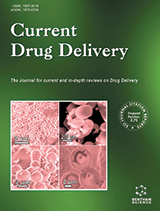-
oa Pharmacogenetics of Intestinal Absorption
- Source: Current Drug Delivery, Volume 5, Issue 3, Jul 2008, p. 153 - 169
-
- 01 Jul 2008
Abstract
The small intestine is the primary site of absorption for many drugs administered orally and so is the target tissue for pharmacotherapeutic strategies to control the oral absorption of drugs. Drug transporters, including the ATP-binding cassette (ABC) superfamily and the solute carrier (SLC) superfamily, have been considered to play a physiological role in regulating the absorption of xenobiotics, and variations in their expression level and function in the small intestine cause intra- and inter-individual variation in the oral absorption of drugs. Recent advances in molecular biology have suggested that genetic polymorphisms are associated with the expression level and function, and thereby inter-individual variation. In this review, the pharmacogenetics of these transporters is summarized, and their future significance in the clinical setting is discussed.


